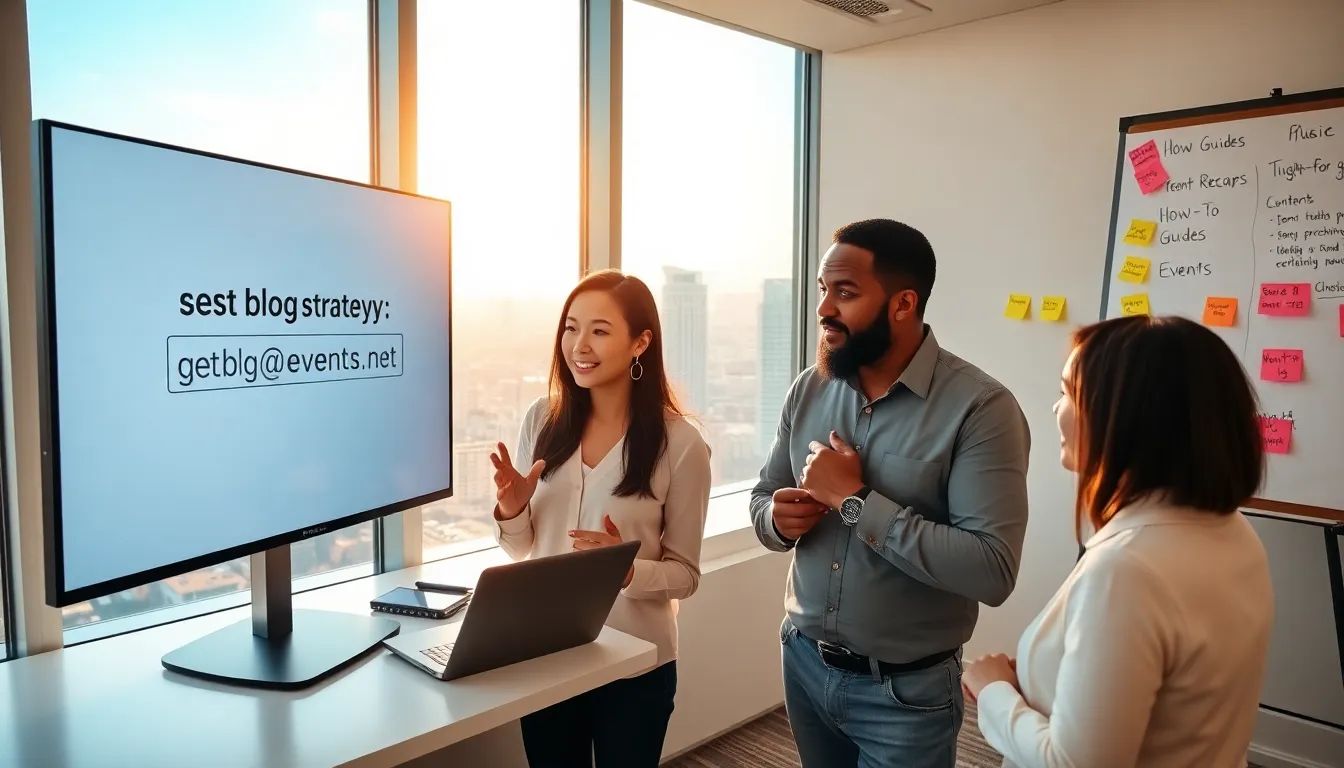In the competitive landscape of the events industry, establishing a solid online presence is paramount. One effective way to enhance visibility and connect with potential clients is through blogging. A well-crafted blog not only showcases expertise but also serves as a platform for engagement and content marketing. This article delves into the importance of blogging for your event business and offers practical insights on how to leverage this tool for success.
Table of Contents
ToggleUnderstanding the Importance of a Blog for Your Event Business

A blog can serve as the beating heart of an event business’s marketing strategy, creating avenues for connection and sharing value with potential clients.
Benefits of Blogging in the Event Industry
Blogging opens the door to numerous benefits: it positions the business as an industry authority, helps in establishing relationships with clients, and offers a space for creativity in presenting events. Content that showcases expertise can draw in searches from potential clients looking for help with planning their events, thereby increasing visibility.
Building Brand Awareness
Through regular blog posts, event businesses can solidify their brand presence in the market. Each entry is an opportunity to reflect the company’s values and mission, helping to create a consistent brand voice. Incorporating case studies and testimonials in posts can enhance authenticity and build trust among readers.
Engaging with Your Audience
A blog is also a platform to engage with an audience. By encouraging comments and discussions, event planners can receive valuable feedback and ideas from clients. This interaction not only fosters community but can also guide future content based on audience interests.
SEO Advantages for Event Planning Blogs
Search Engine Optimization (SEO) plays an integral role in ensuring that an event planning blog reaches its target audience. By creating high-quality, keyword-rich content, businesses can improve their chances of ranking higher on search engine results pages (SERPs). This increased visibility can lead to more traffic, bookings, and inquiries. Also, blogs can help establish inbound links to a business’s main site, further boosting its online authority. Consistent updates and relevant content are vital in maintaining visibility and relevance in a fast-paced digital world.
Creating Compelling Content for Your Blog
Generating captivating content is fundamental to attracting and retaining an audience. A blog should focus on providing valuable information that resonates with readers.
Types of Content to Feature on Your Blog
Event planning blogs can vary widely in content types, from informative posts about industry trends to sharing curations of event-planning tools and resources. Pictures and videos from past events can also be effective in visually communicating the essence of the business.
How-To Guides and Tips
How-to guides are particularly popular because they help solve specific problems clients may face. Whether it’s tips for organizing a wedding or a corporate retreat, these posts can help establish the event planner’s authority and expertise.
Event Recaps and Case Studies
Sharing event recaps or case studies can give potential clients insights into what they can expect when working with a particular planner. Discussing challenges faced and how they were overcome can show prospective clients the planner’s expertise and adaptability.
Guest Posts and Collaborations
Collaborating with other bloggers and professionals in the industry can be a great way to expand reach and audience. Guest posting on reputable websites not only improves visibility but also builds backlinks to your own site, increasing authority and traffic. Also, hosting guest authors can bring fresh perspectives and expertise to your blog, further enriching the content and increasing engagement.
Promoting Your Blog Effectively
Creating a blog is just the beginning: promoting it effectively ensures that it reaches the widest audience possible.
Utilizing Social Media for Distribution
Leveraging social media platforms can lead to greater blog exposure. Businesses should share their posts on different social media channels, tailoring the message to fit each platform’s audience. Encourage shares and interactions to amplify reach.
Networking with Other Bloggers and Influencers
Building relationships with influencers and other bloggers can also enhance promotional efforts. This reciprocal relationship can foster a supportive community and lead to opportunities for collaboration, further extending the blog’s audience.
Measuring Blog Success and Analytics
To understand whether blogging efforts are paying off, it’s crucial to measure success using analytics.
Tools for Tracking Blog Performance
Various tools, like Google Analytics, can provide insights into blog performance, including traffic sources, user behavior, and content effectiveness. These metrics help identify what resonates with readers and inform future content strategy.
Key Metrics to Monitor
Key performance indicators (KPIs) to monitor include page views, bounce rates, time spent on page, and social shares. These metrics will provide valuable insights and guide refinements to content strategy.
Conclusion
In the evolving landscape of the events industry, having a robust blog associated with your business can serve as a vital tool for connection, engagement, and authority-building. By understanding the nuances of content creation, SEO, and analytics, event planners can harness the power of blogging to elevate their business and enhance their online presence.





